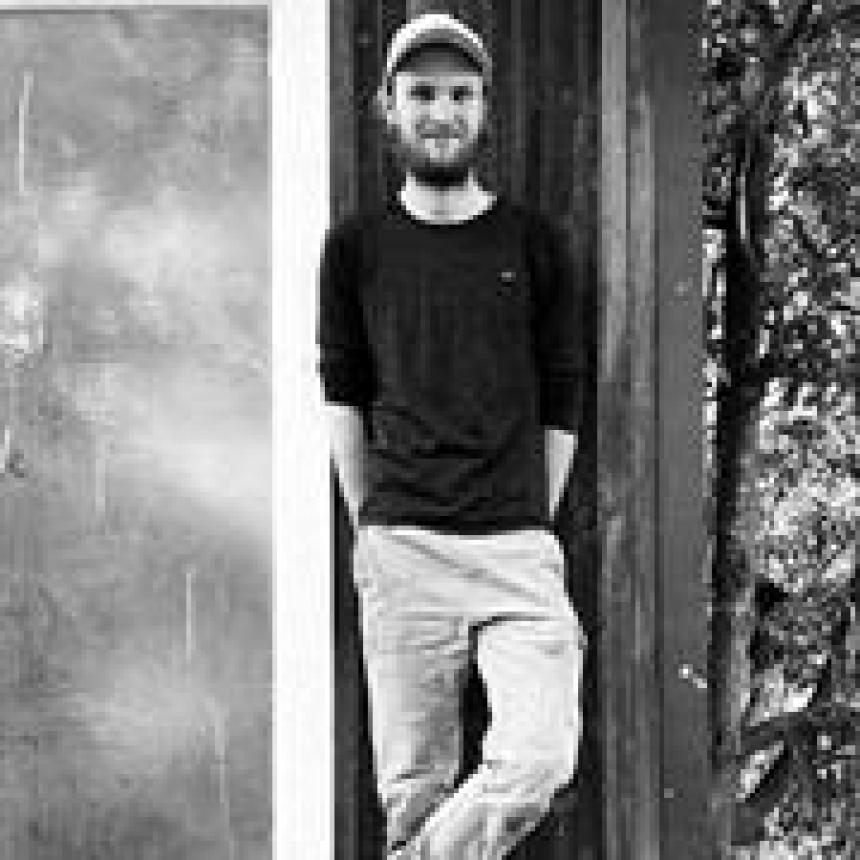
Mr Maximilian McQuillan
Higher Degree by Research Candidate
School of Architecture and Built Environment
College of Creative Arts, Design and Humanities
Max's research interests lie at the intersection of landscape architecture and landscape science, where he aims to integrate ecological restoration with the design of urban landscapes. He completed his Advanced Bachelor of Science at Adelaide University, majoring in Ecology and Environmental Science, and went on to pursue an Honours degree focused on plant-soil interactions in native Australian systems. His research investigated how native plants store phosphorus in their leaves, and its implications for nutrient cycling, global change, and ecosystem function. This research led to a publication in the prestigious journal, Plant and Soil.
After gaining practical experience as an environmental scientist in contaminated land consulting in Adelaide and Melbourne, Max pursued his long-standing ambition to study Landscape Architecture during the Covid-19 lockdown. He obtained a Graduate Certificate in Landscape Design, furthering his interest in the interrelation of social, environmental, and design aspects.
Max is currently a PhD candidate in Landscape Architecture at Adelaide University, leveraging his scientific background and design interests to pursue a cross-disciplinary project. His research focuses on achieving biodiversity conservation in urban areas, which he believes can be achieved by incorporating ecological restoration tools with design. He secured a Green Adelaide grant to reconstruct a native grassland at Glenthorne National Park, located within metropolitan Adelaide.
Max's primary research question is: how to design urban landscapes that prioritize biodiversity conservation. To answer this question, he is using action research methods to document the design and implementation process of a native grassland reconstruction project. Through his work, he aims to develop strategies that incorporate restoration ecology principles and tools into urban landscape design, with the ultimate goal of promoting biodiversity conservation in urban areas.
To validate the effectiveness of his approach, Max has established a randomized controlled ecological experiment and is using genetic and remote sensing tools to track biotic and abiotic changes. This experiment will allow him to rigorously evaluate the success of his ecological restoration efforts, and to adjust his strategies as necessary. Overall, Max's research represents an innovative and interdisciplinary approach to the challenge of promoting biodiversity in the context of urban development.
| Language | Competency |
|---|---|
| German | Can read, write, speak and understand spoken |
| Date | Institution name | Country | Title |
|---|---|---|---|
| 2020 - 2020 | Deakin University | Australia | Graduate Certificate of Landscape Design |
| 2018 - 2019 | University of Adelaide | Australia | Honours - Soil Science |
| 2015 - 2018 | University of Adelaide | Australia | Bachelor of Science (Advanced) |
| Year | Citation |
|---|---|
| 2026 | McQuillan, M., Rifai, S. W., Lilley, C., Ostendorf, B., & Hawken, S. (2026). Pixel Patchwork: Monitoring Temperate Grassland Restoration Success With Sentinel-2 Phenology Metrics in Urban Australia. Applied Vegetation Science, 29(1). |
| 2024 | McQuillan, M., Smernik, R. J., & Ryba, R. (2024). Sunlight can have a stronger influence than air temperature on soil solarisation: observational evidence from Australia. Soil Research, 62(2), 8 pages. |
| 2023 | McQuillan, M., & Ryba, R. (2023). The evolving circle of landscape design. Restoration Ecology, 32(1), 6 pages. Scopus1 WoS1 |
| 2020 | McQuillan, M., Smernik, R. J., & Doolette, A. L. (2020). Partitioning of phosphorus between biochemical and storage compounds in leaves follows a consistent pattern across four Australian genera growing in native settings. PLANT AND SOIL, 454(1-2), 57-75. Scopus12 WoS12 |
Honours Scholarship – AW Howard Memorial Trust Inc.
Dr Jennifer Gardner Prize for Waite Arboretum Research
PhD Research Training Program (RTP) Scholarship
Green Adelaide Grassroots Grant for project titled: Glenthorne Community Grassland
Laboratory demonstrator for undergraduate Soils classes (in 2019)


